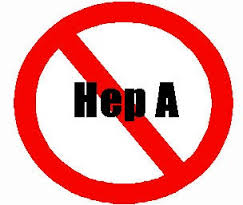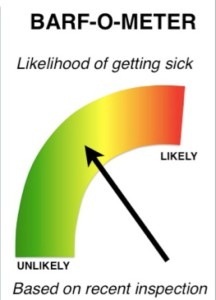While the Alabama Department of Public Health (ADPH) is recommending the hepatitis A vaccine for all food service workers, a Missouri county has imposed mandatory Hepatitis A vaccinations for food handlers.
 Tommy Tobin of Forbes reports Franklin County, Missouri, joins a handful of jurisdictions across the country with mandatory Hepatitis A vaccine programs aimed at preventing further cases. This development is part of a larger trend aimed at expanding vaccinations for Hepatitis A and addressing future outbreaks of the disease.
Tommy Tobin of Forbes reports Franklin County, Missouri, joins a handful of jurisdictions across the country with mandatory Hepatitis A vaccine programs aimed at preventing further cases. This development is part of a larger trend aimed at expanding vaccinations for Hepatitis A and addressing future outbreaks of the disease.
The CDC is investigating outbreaks of Hepatitis A across 29 states. According to the CDC, 233 individuals have died from Hepatitis A between 2016 and 2019 out of over 24,000 reported cases. Several states, including Kentucky, Florida, Ohio, and West Virginia, have seen thousands of cases.
In an effort to curb the increase in reported cases of Hepatitis A, many local jurisdictions are considering mandatory Hepatitis A vaccines for food service workers. For example, Missouri has reported 387 cases of Hepatitis A in the past two years. Over 50 of these cases are from Franklin County, which has a population of about 100,000 residents. Franklin County officials have imposed mandatory vaccinations for individuals who handle food. Food establishments, including restaurants, have 90 days to ensure their employees are vaccinated. Nearby St. Louis County, Missouri enacted a mandatory vaccine requirement nearly 20 years ago. Similar ordinances requiring vaccines for food service workers were enacted in Kentucky’s Ashland and Boyd Counties last year.
With the numerous cases across the country of Hepatitis A, the National Restaurant Association recently issued guidance to its member restaurants in an effort to reduce future cases. In this guidance, the Association recommended that restaurant managers and operators encourage employees to get vaccinated, educate restaurant staff about the virus, and monitor for any signs of the disease. (Note: The National Restaurant Association did not respond to requests for comment on this story). Separately, a CDC advisory panel recently recommended expanding the use of the Hepatitis A vaccine to all youth aged 2 to 18.



 support of calls for a mandatory
support of calls for a mandatory 
 Canada requires 16 hours of training. To coach kids on a travel team requires an additional 24 hours of training.
Canada requires 16 hours of training. To coach kids on a travel team requires an additional 24 hours of training. the number of foodborne illnesses.
the number of foodborne illnesses. The provincial regulators also suck.
The provincial regulators also suck..jpg) A related story
A related story